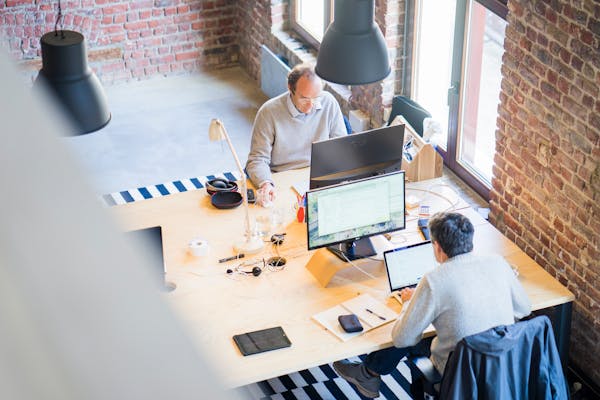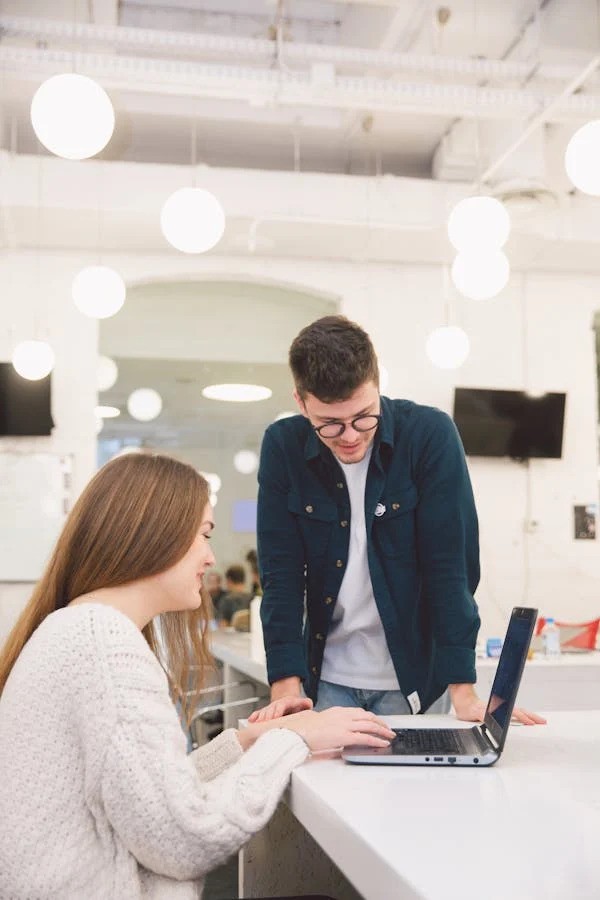Creating an office environment that fosters growth and supports the evolving needs of a startup is crucial for long-term success. Startup office design goes beyond aesthetics; it’s about crafting a space that enhances productivity, collaboration, and employee well-being. By strategically planning the layout, amenities, and atmosphere, startups can cultivate a workplace that not only attracts top talent but also nurtures innovation and scalability.
Understanding the Startup Office Dynamics
Startup offices are more than just workplaces; they are incubators for ideas and hubs of creativity. Unlike traditional corporate environments, startup spaces often prioritize flexibility, adaptability, and a sense of community. These characteristics are essential as startups frequently undergo rapid changes in team size, project scope, and operational requirements. The dynamic nature of startups necessitates office designs that can evolve alongside the company’s growth trajectory. This might include open layouts that promote fluidity and ease of communication, as well as versatile spaces that can be repurposed as needs shift. By understanding these dynamics, startups can tailor their office environments to support not only their current operations but also their future aspirations.
Flexible Spaces for Evolving Needs
Startups evolve quickly, and their office spaces must adapt accordingly. Designing with flexibility in mind allows for easy reconfiguration as needs change. Modular furniture, movable partitions, and multipurpose rooms enable startups to scale their operations without major disruptions. This agility not only accommodates growth but also promotes a dynamic work environment that can pivot with market demands. Additionally, flexible spaces can support diverse work styles and preferences among employees, from quiet zones for focused work to collaborative areas for brainstorming sessions. By creating adaptable environments that can flexibly meet various operational needs, startups can optimize their office spaces to foster productivity and innovation across different teams and projects.

Enhancing Brand Identity Through Design
The office space serves as a tangible representation of a startup’s brand and culture. Thoughtful design elements that reflect company values and mission can strengthen brand identity. From color schemes and artwork to branded signage and themed spaces, every detail contributes to creating a cohesive and memorable brand experience for employees, clients, and visitors alike. Aligning office design with brand identity reinforces organizational values and fosters a sense of pride and belonging among stakeholders. Whether through incorporating corporate colors into the interior design or showcasing company achievements through curated displays, startups can leverage their office spaces as powerful tools for communicating their unique identity and vision to the external world.
Prioritizing Employee Comfort and Well-being
A supportive work environment directly impacts employee satisfaction and productivity. Ergonomic furniture, ample natural light, and well-designed break areas with practical vending machines contribute to a comfortable workspace. Incorporating elements of biophilic design, such as indoor plants and natural materials, can reduce stress and enhance creativity. Additionally, amenities like wellness rooms or fitness areas promote overall well-being, fostering a healthier and more engaged workforce. Startup office designs that prioritize employee comfort and well-being not only enhance the workplace experience but also contribute to higher job satisfaction and lower turnover rates. By investing in the physical and mental well-being of their employees, startups can create environments where individuals feel valued, motivated, and empowered to contribute their best work.

Sustainability and Efficiency
In today’s business landscape, sustainability is increasingly important. Adopting eco-friendly practices in office design, such as energy-efficient lighting, recycling programs, and sustainable materials, not only reduces environmental impact but also appeals to environmentally conscious stakeholders. By prioritizing sustainability, startups can align their operations with ethical principles while potentially lowering long-term operational costs. Sustainable office designs that minimize resource consumption and waste generation not only contribute to a healthier planet but also position startups as responsible corporate citizens. Moreover, sustainability initiatives can attract environmentally minded investors, partners, and clients who value businesses committed to reducing their ecological footprint. By integrating sustainability into their office spaces, startups can demonstrate leadership in environmental stewardship while creating workplaces that support long-term business sustainability.
Measuring Success and Iterating
Effective office design is an iterative process that involves feedback, observation, and adaptation. Regularly soliciting input from employees through surveys or focus groups can provide valuable insights into how well the workspace supports their needs. Analyzing metrics like productivity levels, employee retention rates, and collaboration frequency helps gauge the success of design interventions and informs future improvements. By continuously evaluating and refining office design strategies based on real-time data and employee feedback, startups can ensure their office environments remain aligned with organizational goals and employee expectations. This proactive approach not only enhances workplace satisfaction and performance but also positions startups for sustained growth and success in a competitive market landscape.
Startup office design is a strategic investment in both the present and future of a growing company. As startups continue to evolve, so too should their office spaces, evolving with their needs and aspirations. By embracing adaptable design principles, integrating sustainability initiatives, and prioritizing employee feedback, startups can build office environments that not only inspire creativity and engagement but also drive long-term business success.




